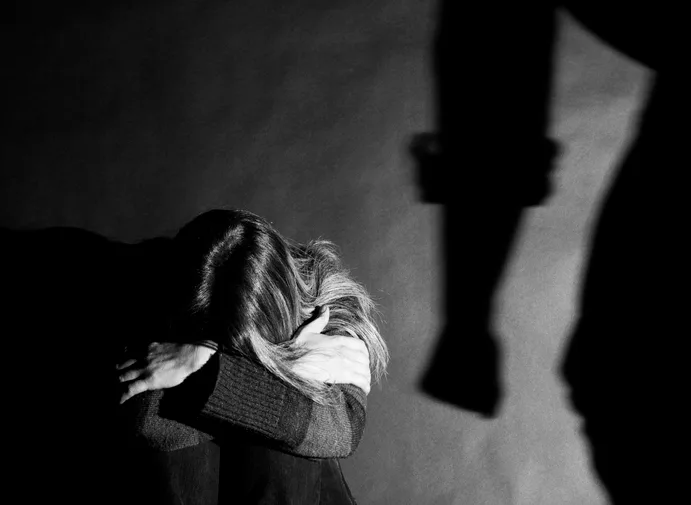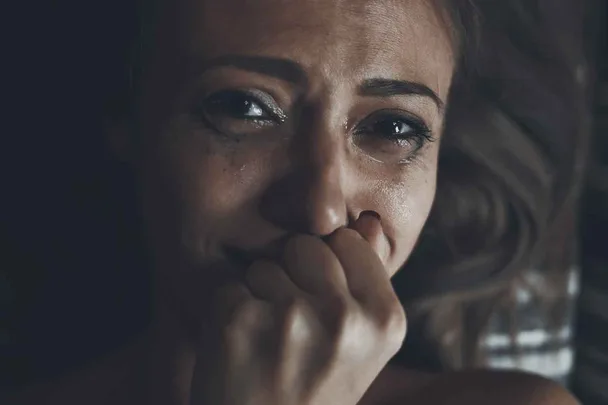This article deals with domestic violence and abuse which could be triggering to some. If you, or someone you know, needs help contact 1800RESPECT.
But while many of us may have been happy at the chance to head home and begin work among family and friends, self-isolation in the home can present a serious challenge for those living with an abusive partner or family member. This pandemic could very well see the rise in domestic violence whether it be emotional, physical or verbal abuse.
On average, 1 woman a week is murdered by her current or former partner in Australia, according to the National Homicide Monitoring Program report. Almost 10 women a day are hospitalised for assault injuries perpetrated by a spouse or domestic partner, per the AIHW, and in 2019 alone 3600 women hospitalised for assault injuries identified a spouse or domestic partner as the perpetrator.
For women who are experiencing domestic violence, mandatory lockdowns to curb the spread of COVID-19 have trapped them in their homes with their abusers, isolated from the people and the resources that could help them.
“This has been a concern of mine as individuals are being forced to be with their perpetrators for prolonged amounts of time,” Lysn psychologist Nancy Sokarno tells marie claire Australia. “It is alarming that individuals will need to be in the face of these perpetrators and as stress levels rise as does conflict. Not having an outlet for anger or frustrations are going to potentially lead to projection onto these victims.”

“As we continue to self-isolate we are alone with our minds, which for some is not a pleasurable experience,” Sokarno adds. “Over thinking, over analysing and catastrophising are ways our cognitions become distorted and in turn as do our behaviours. The heightened arousal and panic may cause us to react in irrational ways and may be an additional cause of emotional or physical abuse.”
“As uncertainty looms for our future, we need to check in with friends or family members who we know have been impacted by DV in their homes and ensure we give them a support network to turn to in these trying times.”
One out of three women in the world experience physical or sexual violence in their lifetime, according to the World Health Organization, making it “the most widespread but among the least reported human rights abuses.” But during times of crisis, such as natural disasters, wars, and epidemics, the risk of gender-based-violence escalates.
In China, the number of domestic violence cases reported to a nearby police station had tripled in February compared to the same period the previous year, AXIOS reports. In the US, National Domestic Violence Hotline reports that a growing number of callers say that their abusers are using COVID-19 as a means of further isolating them from their friends and family.
“Research has indicated that a 53 percent increase in domestic violence occurred in New Zealand after the Canterbury earthquake, and in the US a 98 percent increase towards women after Hurricane Katrina,” says Anne Marie Collins, President at Australian Association of Psychologists Inc.
“While there is a whole gendered context for family violence, it can be explained in a nutshell that a person who feels out of control (whether that be in their life, work or emotions or because of disaster) tries to self soothe by controlling their environment, which includes usually or even primarily, an intimate partner and sometimes children.
“The strategy never works because a person who is the target of his control is always bound to do something they could not control, simply because they are human and cannot actually read their mind.”
While the current crisis makes it difficult for victims to seek help. As medical facilities around the world try and keep up with growing demands for supplies and beds as a response to the coronavirus, domestic violence victims may find it harder to get access to medical care. For many women, even the fear of contracting the coronavirus is stopping them from seeking out medical care after experiencing physical abuse.
Collins suggests some of the ways Australian women can seek help.
Reach out to a domestic violence service to make a safety plan. “Remember police will still be working and they should be included in the safety plan. Some psychologists are also trained in domestic violence support and you should reach out to them for support to help you”.
Head to the Australian Association of Psychologists Inc (AAPi).
Call 1800RESPECT.
This article deals with domestic violence and abuse which could be triggering to some. If you, or someone you know, needs help contact 1800RESPECT.
This article deals with domestic violence and abuse which could be triggering to some. If you, or someone you know, needs help contact 1800RESPECT.










